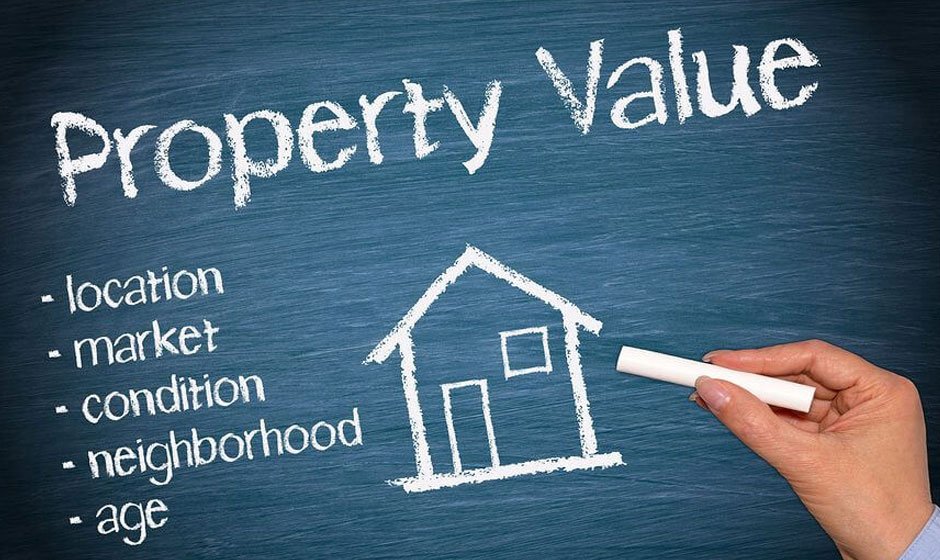What affects the market value of a property?

Real estate is an active and ever-changing market, and the value of a property can fluctuate for multifarious reasons. Comprehending what affects the market value of a property is compulsory for buyers, sellers, and investors. After reading this, you’ll explore the factors that influence the market value of a property, from location and property size to economic conditions and government policies. By the end, you’ll have a comprehensive understanding of how the real estate market works.
Factors affecting the market value of a property
Here are some factors that affect the market value of a property:
● Location
The impact of location on the market value of a property is undeniable. Location isn’t just about where a property is located, it’s about the entire neighborhood, the surrounding amenities, and the lifestyle it proposes. The quality of the neighborhood is a crucial consideration when anyone buys a property. Secure, well-maintained neighborhoods with lower crime rates and adequate schools are the causes of higher property values. People wish to live in areas where they can feel protected and where their children can acquire a quality education.
Proximity to basic services also plays a key role. Homes near schools, healthcare facilities, shopping centers, and public transportation are more valuable because of the convenience they offer. Being close to these services facilitates daily life, making the location attractive to potential buyers. Accessibility is another important aspect. Easy access to highways, major roads, and public transportation options is a selling point. Secondly, Scenic views and natural surroundings can also enhance a property’s market value.
● Property size
Other than location, the size of a property is a fundamental factor that greatly influences its market value. A property’s size confines both the land it sits on and the size of the actual structure, and both aspects play a compulsory role in determining its worth. The land size can have a substantial impact. Larger plots of land typically command higher market values, especially in areas where land is inadequate. This is because more extensive plots propose greater privacy, potential for landscaping, and the opportunity to build additional structures or extensions, all of which are appealing to potential buyers.
On the other hand, the size of the structure on the property is also crucial. A larger house with more living space, such as additional bedrooms, bathrooms, or extra rooms, often exhibits a higher market value. Larger homes propose more comfort, flexibility, and functionality, which can be attractive to families or those desiring spacious living environments. Property size is also affected by local zoning regulations, which dictate how land can be utilized and developed. These regulations can impact the possibility of property expansion or the addition of outbuildings, enhancing the property’s market value.
● Condition of a property
The condition of a property is a fundamental determinant of its market value. It’s one of those things that can make or break a sale, and it goes beyond just appearances. The overall state of a property encompasses manifold elements that directly influence its value. The first and foremost thing that a buyer notices is the age and maintenance of a property which play a significant role. A well-maintained property that has been updated and cared for over the years is more likely to have a higher market value.
Maintenance includes regular repairs, such as fixing leaky roofs or managing structural issues, which can instantly impact a property’s appeal and value. Structural integrity is another critical aspect. A property that is structurally free from major issues or defects is more attractive to potential buyers. Issues like a shaky foundation or a damaged roof can not only discourage buyers but also usher in lower offers. Curb appeal matters as well. The exterior appearance of a property and overall aesthetic can influence its market value. A well-kept garden, a fresh coat of paint, and a welcoming entrance can significantly boost a property’s value.
● Economic condition and government policies
Economic conditions have a significant influence on property values. In times of economic growth, property values will rise. On the other hand, during economic downturns, property values may fall. Factors such as interest rates, employment rates, and consumer confidence can also affect the real estate market. Secondly, government policies which include tax incentives and zoning regulations also play a crucial role. Tax breaks for homeownership can make properties more demanding, while modifications in zoning laws can impact a property’s usage and market value.
To end, understanding the manifold factors that affect the market value of a property is compulsory for anyone involved in real estate. From location and property size to economic conditions and government policies, each element plays a key role in determining a property’s worth. By considering these factors, buyers and sellers can make informed decisions in the ever-changing real estate market. If you’re looking for an instant cash offer for your home, visit https://www.smartcashforyourhome.com/sell-my-house-fast-fort-wayne/ today!



